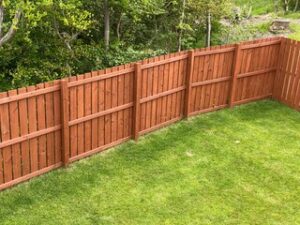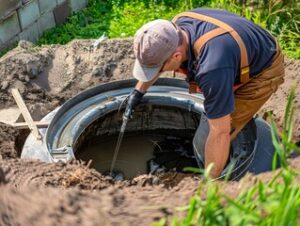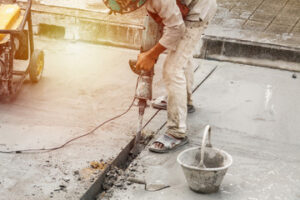Charlotte Fence Company supplies and installs fencing materials to a wide range of clients. They also offer repair services and provide maintenance for existing fences. Creating a reputation for reliability will help you stand out from the competition.

Identifying your target market is important, as well as creating a business plan to ensure your firm has enough startup capital. You should also get insurance for your Fence Company.
Fences are effective in blocking out unwanted noise and enhancing a peaceful outdoor environment. They can be constructed from a variety of materials, and their effectiveness in sound reduction depends on their design, location, and construction. For example, fences made from heavy and dense materials like masonry or concrete are highly effective in blocking noise. In addition, incorporating multiple layers and covering gaps with acoustic insulation materials can increase their noise-reducing capabilities.
The height of a noise-reducing fence also plays an important role in its ability to block sound waves. It is recommended that these barriers be positioned at least four times the distance from the source of the noise. In addition, the material used to construct these barriers should be as thick and dense as possible. Moreover, it should be designed to reflect or deflect sound rather than absorb it.
Several different types of noise-reducing fencing are available in the market, including wood fences, metal fences, and concrete block fences. The type of fence you choose will depend on the level of noise you want to reduce, as well as your budget. Some of these fences are very expensive, while others offer more affordable options.
Another important consideration is the size of your business. You will need a lot of tools to run this type of business, including post drivers, fence stretchers, saws, drills, air compressors, and a concrete mixer. You will also need to hire employees on a part-time basis or as contractors. In addition, you will need to invest in marketing and advertising for your company.
Regular inspections of your sound-reducing fences are also critical to ensure that they remain in good condition. This can help identify any signs of wear and tear, such as weakened support posts or sagging panels. They can also detect the presence of mold, fungus, or other signs of damage that can affect their noise-blocking abilities.
Privacy
Privacy fences help homeowners feel more comfortable in their own yard, free from prying eyes and unwanted trespassers. They also deter crime by making it harder for potential burglars to scope out your home, as they can’t see through or over the fence. They’re a great addition to any property and provide peace of mind for families with children and pets.
Aside from the quality of life benefits, a privacy fence can actually increase your property value by 10%-25%. This can make the cost well worth it, especially if you plan to sell your house in the future. It’s important to consult with your local homeowner’s association or zoning boards to ensure that the style and height of your fence comply with any restrictions. You should also communicate with your neighbors to let them know of your plans.
Noise insulation is another important benefit of a privacy fence. If you live in a busy neighborhood, it can be difficult to relax at home without the distraction of nearby traffic or other people’s voices. A privacy fence will block out the noise and allow you to enjoy your backyard without feeling overwhelmed.
If you’re thinking of starting a fencing company, it’s important to set up the right business structure. The type of structure you choose will have a significant impact on how much money you can make and how stable your business is. While sole proprietorships and partnerships are popular choices, they’re not the best option for a long-term business. An LLC, on the other hand, offers a more flexible and tax-efficient way to run your business. It will also protect your personal assets from legal action against your business.
Security
A security fence provides a physical layer of protection for businesses and their assets, preventing theft and trespassing. It also reduces the risk of vandalism and other damage that can occur to business property. A professional fencing company can customize the design of a security fence to suit your specific needs and budget.
A well-designed fence can reduce insurance premiums, making it an excellent investment for your business. Your insurer may even offer a discount for a well-secured location, especially when combined with other security features such as surveillance cameras and motion detectors.
One of the most important aspects of starting a fence company is finding qualified employees. Start by posting job advertisements online on sites like LinkedIn and Indeed. Once you receive applications, conduct thorough interviews and ask thoughtful questions to help you identify the best candidates. Then, make an offer and onboard your new employee.
Once a fencer is hired, they can begin to generate referrals for your business. Encourage them to spread the word about your services, and provide a referral reward for each new customer they refer. You can also advertise your fencing services by creating a website and social media pages, as well as by attending local events.
Another way to get the word out about your business is by using branded advertising materials. Print business cards and vehicle wraps, as well as outfit your employees with branded uniforms. This will make your business look more professional and increase brand recognition. You can also use online marketing tools such as Google Business and Yelp for Business to promote your services. Finally, consider incorporating your business to protect yourself from personal liability. A sole proprietorship or partnership exposes you to personal liability for your business’s debts and legal actions, but a limited liability corporation (LLC) offers greater stability and protection.
Durability
When a fence company uses high-grade materials to construct its fences, they are durable and can last longer than other fencing options. This ensures that homeowners can enjoy their fences for a long time, saving them money on repair and replacement costs. A reputable company will also offer a warranty and guarantee on their fences, giving customers peace of mind that their investment is protected.
Fencing companies offer a wide variety of fence designs and styles. They can build fences out of wood, PVC, aluminum, and iron, and they may use various finishes to improve their appearance. They can also build gates and repair fencing issues like rust and missing panels.
Many homeowners choose to buy their fences from a fencing company, as they are knowledgeable and have years of experience. These professionals stay updated on the latest trends in the industry, so they can provide their clients with the best possible products and services. They can help homeowners choose the best materials and create a custom design that meets their needs.
Fence installation is a difficult task, and a fence company can hire a full-time or part-time employee to do the work. This can be a great way to save money on labor and keep the business running smoothly.
A fence company can also help its clients with the legal concerns related to fence installations, such as building codes and zoning regulations. It can also advise clients on how to maintain their fences, and it may provide discounts for upkeep and repairs. A fence company should also have adequate insurance coverage to protect its employees in the event of an accident or injury on the job.
Aesthetics
A fence company not only enhances the curb appeal of properties, but can also make them more desirable in the real estate market. This is especially true for commercial property owners. The fences can help protect important assets and secure the property against unauthorized individuals and damage. In addition, they can provide a secure and private environment for employees and customers. These benefits can increase a business’s value and attract potential investors.
A reputable fence company will have years of experience. This expertise is evident in the way they approach each project. They begin with a comprehensive consultation that focuses on the client’s specific needs and preferences. Then, they expertly install the fences using a process that ensures quality and a seamless integration into the property. Finally, they offer post-installation support and guidance to keep the fences looking their best.
In addition to providing a quality product and excellent customer service, a fence company will have the right insurance policies to protect themselves and their clients. This is essential for a new business as it can help reduce the risk of lawsuits. It will also help build trust among clients.
The best type of insurance for a fence company is general liability. It covers the company’s legal liability for bodily injury and property damage that may occur during or after the completion of a job. This type of insurance can help the business avoid expensive lawsuits and financial losses. In addition, a fence company should also have workers compensation insurance to cover any injuries that the employees may sustain while working on the jobsite. This will protect the company from any unforeseen accidents that could happen during the construction of the fences.








